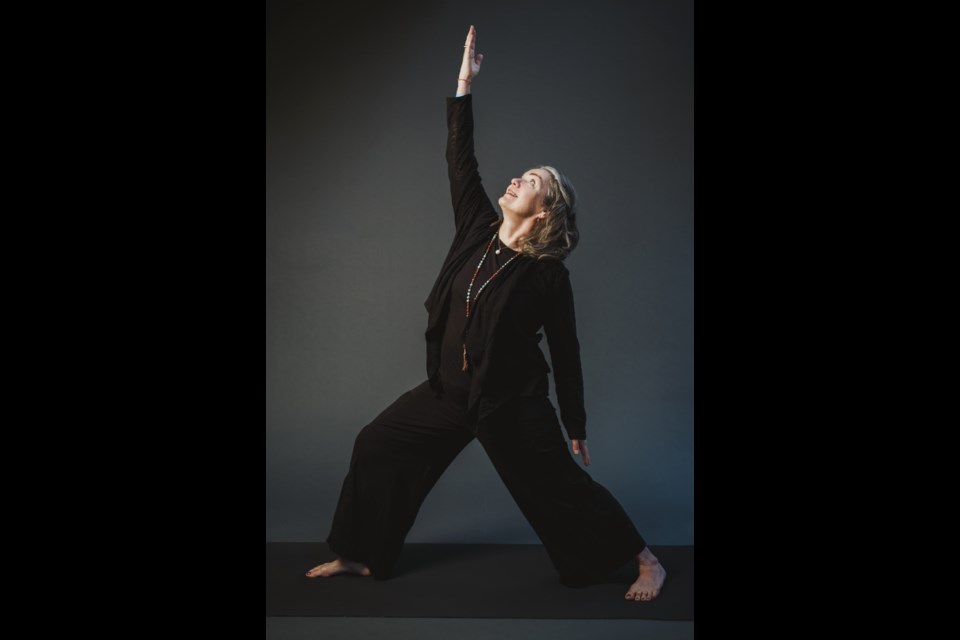Chronic pain and specifically, lower back pain has become a major health issue for people around the globe. It is usually caused by living a sedentary lifestyle, such as sitting for many hours during the day.
“Everybody after age 30 should be concerned about managing back care,” said local certified yoga therapist Regina Pfeifer.
She said many doctors are now recommending it as a first defence for managing stress and pain. Much of this focus also stems from the overuse of opioids used for pain management.
Pfeifer said that slowly, “yoga is being recognized as a science-based therapy.”
According to Harvard Medical School “yoga involves a series of poses and breathing techniques. The postures help to stretch and strengthen muscles, which helps reduce muscle tension, gain flexibility and strength, and improve balance and bone strength.”
Pfeifer is offering two five-week courses starting in March at Powell River Recreation Complex: yoga for healthy aging, and therapeutic yoga for back care.
Although the qathet region population age characteristic skews older, with Statistics Canada citing more than 7,000 residents over the age of 55, Pfeifer emphasizes that the classes and yoga practice are beneficial for anyone. The longtime therapist has noticed that the residents in the region are “active and seek out self-care and community.”
“Certified yoga therapists are trained to work with specific health conditions: physical, mental, emotional, psychological, and in an allied health-care team,” said Pfeifer. “However, our scope of practice excludes providing any diagnosis.”
Compared to a regular yoga class that can have 30 participants or more, therapeutic yoga is more intimate so the therapist can give students more individualized plans for specific ailments such as scoliosis, or an injury they may have.
Both yoga and tai-chi are ancient Eastern practices combining breath and movement, and have been linked to lowering blood pressure and relieving aches and pains. Most links to the health benefits of yoga have been anecdotal until very recently.
“In recent years pain-science has made a big shift and this has much to do with discoveries in neuroscience,” added Pfeifer.
Numerous randomized control studies look at yoga and pain management, pointing to the fact that yoga not only focuses on the physical experiences but also the cognitive experiences.
“This could possibly lead to neuroplastic changes and physical changes in the body,” stated physical therapist and clinical professor Neil Pearson in his article in Neurobiology of Pain.
Well-known American sports doctor Dr. Lauren Elson stated that “yoga helps strengthen and stretch back muscles that might be tight, which improves mobility.”
Many medical practitioners in North America are recognizing the health benefits of yoga for people with chronic pain. “Doctors in countries like Germany, for example, prescribe yoga and therapeutic yoga as a remedy and alternative to prescribing painkillers, such as opioids,” said Pfeifer.
One study in the American Journal of Preventive Medicine showed that a 12-week yoga program improved pain intensity and reduced opioid use among military veterans.
“The different aspects of yoga: breath awareness, mindfulness, self-study, stillness, apart from movement, can be experienced as very empowering for people who live with persistent pain,” said Pfeifer. “They often have given up hope of finding relief, but being supported and guided to use these techniques of yoga can help people to see themselves differently. They learn to see the connection of the physical body with breath, emotions, feelings and their thoughts.
“Pain can be looked at as stress in the body. Anytime when relaxation can be allowed in, there is a chance that stress decreases and people feel room for other sensations that are not pain.”
As a yoga therapist, Pfeifer has witnessed people with chronic conditions discovering a sense of confidence in themselves.
“The light in their eyes, realizing that they are not alone and have options, for me, it has always been a privilege to witness participants being able to shift limiting beliefs about their body and thought patterns,” said Pfeifer.
She added that the shift often results in better self-care, and less pain.
Both sessions run from March 1 to 29 at Powell River Recreation Complex.




